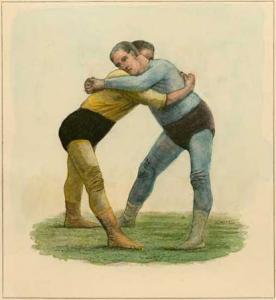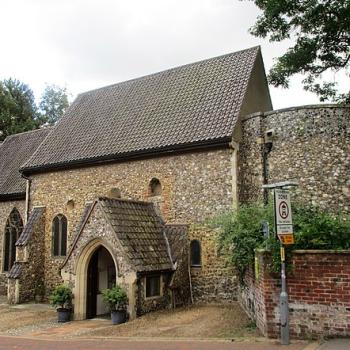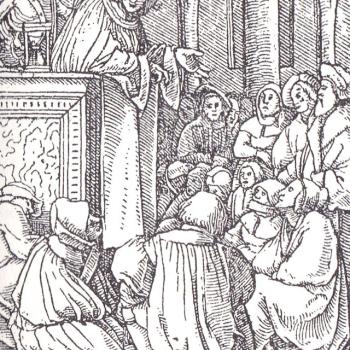MANY LOVES
A Small Reflection on the Spiritual Life
James Ishmael Ford
Today I want to talk of love as the many splendored thing that it is.
Frankly, love is a subject one should return to regularly in a church, don’t you think? And we’re still quite close to Valentine’s Day. I’d bet some of us still have Valentine’s chocolates uneaten at home. Well, maybe. So, while still in the general area of that peculiar holiday, let’s look once more at love.
Romantic love, obviously, is the subject for the holiday. And it is worthy. And there are reasons it can be hurtful to talk about. But there are other loves to consider, as well. And today, while touching on several aspects, I want to mostly focus on that aspect of love called friendship.
I want to reflect on what it means to care deeply for another, and how that act of friendship changes lives. I suggest friendship, real friendship, is not only part of some larger mystery we call love. But friendship is one of the most important of the several faces of love.
A dear friend once suggested a friend is someone who will help you move. Being of a somewhat jaundiced nature he then added, however, a real friend will help you move a body. It occurred to me he was only half-joking. And I’ve been haunted by that line ever since, as one of those “turning phrases,” a word that points into something, and won’t let you escape, even if you want too.
No doubt friendship is a mutable term with casual and more profound meanings. For instance, in our Facebook age “friend” has come simply to mean someone with whom you may have the most casual and fleeting relationship, where even that old sturdy but now nearly lost word “acquaintance” would be too strong. As much as I enjoy Facebook, I believe Facebook’s use of the word “friend” has become a tawdry thing, a debasing of a word that deserves better.
So. What about that friendship as an aspect of love, the friendship that calls you to help move a body? The Greeks, as anyone who has studied the New Testament or has had to endure friends who have studied the New Testament knows, have a very helpful understanding of how this all comes together. They have four terms for differing facets of what we as English speakers all cram together and call love. The big ones are eros, romantic or erotic love and agape, what we usually think of as Divine love. Given less attention, but nonetheless in the family of love and powerful and true loves are storge, affection or familial love, and philia, friendship.
The mid-twentieth century Christian apologist C. S. Lewis wrote a delightful if occasionally eccentric study titled the Four Loves, which if you’ve not read, I commend to you. One of his points is how these loves really are connected. In fact, each informs the others. And I am really taken with that point. I believe as we look at one kind of love, each of the others are illuminated and illuminate the whole of our human experience of intimacy. And that’s what it’s all about, intimacy. Whatever form love takes. Intimacy. As we explore each aspect of our intimate encounters within our live, I believe we’re on the way to meaning and purpose and direction.
And so agape, which for me is that sense of the greater, those moments where I realize wI am part of something of which I am not really the center is an idea until I find it in moments of presence to another. It is an idea unless it’s found in romantic or filial or neighborly love. God’s hands, the wise tell us, are our hands. Here the dream manifests.
Erotic love that misses our connections with each other in some larger sense, like agape, becomes abusive. And without friendship, is cold and ultimately unsatisfying. And without a familial sense can’t grow deep. Now each part manifests over time, and all of it requires a sympathy and a willingness to give that time to the project.
The project is a full and fulfilling life.
Similarly our familial loves need to encompass all of the others, if as a flavoring, as a sense of the mysteries of our human lives. Here we also need to discover boundaries, the reality that while we are connected, we also are our own with integrity and worth.
Of course, each of these loves do that. Calling us to something.
So, friendship that isn’t informed by all these aspects, all the dynamic variations of affection, misses its real value. Divine love informs erotic love which informs affection which informs friendship which informs all the others. We live in a multi-causal universe, and nowhere is this truth more obviously true than in how we engage and must engage our friendships.
In the spiritual life nowhere do our ideals meet the actual more truly than in how we relate to each other, in how we make, sustain and are friends. And at the heart of that revealing what love is. The cost of love, the cost of friendship can be terrible.
Intimate human relationships are complex. Moving a body is part of that.
Two movies from a few years back might help. I find myself thinking of the horror at the heart of the movie Sophie’s Choice: which child lives, and which dies? There’s a horror within love and choices we are sometimes forced to make. It is definitely not always about joyful endings. Perhaps you recall from some years ago Clint Eastwood’s guy weepy “Million Dollar Baby” where a friend is asked to help a friend die. Real love is dangerous and costly.
What kind of people are any of us going to be, are we if we don’t hazard the dangers, and carve out some time and try to have and to be a friend? We come here to this place for many reasons. They’re all okay. But, somewhere deep in it all we are probably here because of some pressing spiritual question. We are here and not a club or a political party or whatever, in quest of a spiritual life, a life with meaning and purpose.
There is a story contained in the sacred texts of Buddhism. In the Upaddha Sutta we are told (in my paraphrase):
One day while walking quietly together, out of the silence the Buddha’s attendant Ananda declared, “Teacher, to have companions and comrades on the great way is so amazing! I have come to realize that friendship is fully half of an authentic spiritual life. They proceeded along quietly for a while more, before out of that silence the Holy One responded. “No, dear one. Without companions and comrades, no one can live into the deep, finding the true harmonies of life, to achieve authentic wisdom. To say it simply, friendship is the whole of the spiritual life.”
So, what does this look like in real life? How are we friends? What does a genuine full hearted friendship look like? Is it the friendship that the Clint Eastwood character finds in Million Dollar Baby, pulling the plug at a friend’s request? That’s moving a body. Is it noticing someone you know here at church hasn’t been around for a while and giving her a call? It really doesn’t have to be grand. It has to do with attention.
And there’s a little more to this thing.
I recall a conversation with my auntie some years ago. She lived with us for twenty-five years. She was a part of our family. That love. Anyway, I was writing, and she asked what I was addressing. I said friendship. It’s a subject that has long held my heart. And in the moment I asked if she had a thought about it? She said, well, sometimes being a friend is knowing when to say no.
Sometimes a friend doesn’t help move a body.
Friendship, the deep and true, is complex, no doubt. Messy. Filled with uncertainties. And there are no real lists of how one can do friendship. But some things come to mind. Boundaries are part of it. As is abandon. But knowing when for which is part of that dance we must engage as friends. Even if it means stepping on a toe now and again, or having our own foot stepped on. We learn by doing. And friendship often hurts.
And just as there are many different kinds of fake, there are inauthentic friendships. I once read about how Hitler intervened to protect his former commanding officer from the First World War who was Jewish. I’m sure he saw it as an act of friendship. At least in part.
Such things don’t appear to be all that unusual. People who hate classes of people seem to have no trouble, or little, in liking and even being friends with members of that class whom they personally know. Pick your other here, Jews, people whose people come from a part of the world yours did not, gays, or straight people, political opponents. I’m getting a stomach full of challenges around politics these days. Including from people I call family. Including people I consider friends. You know this list is long.
They say familiarity breeds contempt. And sometimes that’s true. My preferred version is “no man is a hero to his valet.” So, getting to know one another isn’t a universal panacea.
And that’s because friendship is about touching the whole, that thing some of us call God. Friendship, real friendship,reveals connections. And it is powerful. And it can be painful.
And the spiritual practice of it is to be intimate and to know when to hold tight and when to let go. UU minister Robert Hardies, in one of his sermons wrote how “There’s an old Talmudic story about a rabbi who is on death’s threshold. In Jewish thinking he has become a goses, which is Hebrew for a soul that is trapped between life and death.
“The rabbi is ready to relinquish his hold on life, but he can’t die because his students are kneeling around his bed, praying fervently for him to live. (I can’t tell you how many times I saw this poignant story take place when I worked as a chaplain in an Intensive Care Unit.) Finally, a sensible woman climbs up on the rabbi’s roof; she takes a clay jug, and throws (it) crashing to the ground. The noise disrupts the students just long enough for their master’s soul to slip quickly into heaven.”
Robert then adds the midrash, the commentary. “Because she helped the students let go, the Talmud notes, the woman will have a place in heaven, too.” Friendship, the real kind, is passing strange. Like all forms of love, it involves passion. And it involves risk. Hence the joke about moving a body. And, it must also, to find its completeness, include our willingness to let go, to let be within the great dance.
As C. S. Lewis tells us:
“To love at all is to be vulnerable. Love anything and your heart will be wrung and possibly broken. If you want to make sure of keeping it intact you must give it to no one, not even an animal. Wrap it carefully round with hobbies and little luxuries; avoid all entanglements. Lock it up safe in the casket or coffin of your selfishness. But in that casket, safe, dark, motionless, airless, it will change. It will not be broken; it will become unbreakable, impenetrable, irredeemable. To love is to be vulnerable.”
Here’s a suggestion. No one without friends can get into heaven. Our friendships, no doubt in my mind and heart, are the soul of our spiritual exercises. Our intimate relationships reveal our lives right now, here, as we really are, and at the same time invite us into ever deeper understandings of our lives. Let me tell you heaven and hell are nowhere other than here. And from that a bottom-line: don’t have time for a friend? Well…
So, a caution, for sure. But also, this is an invitation.
Maybe the invitation.
Into the whole of our spiritual lives.
Amen.













